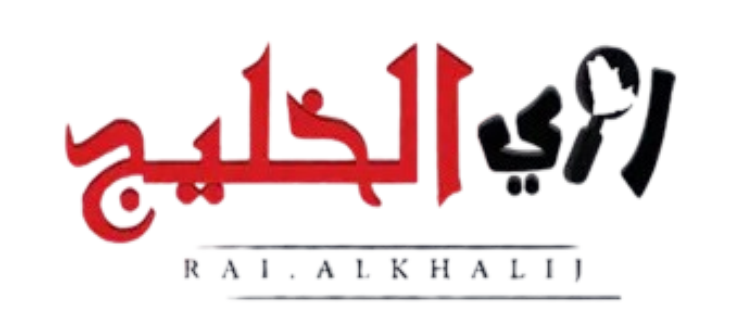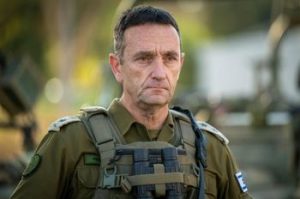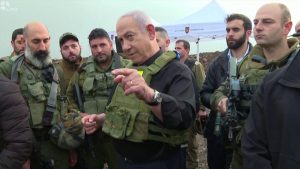Rising Tensions on the Lebanese Border: The fragile calm along the Lebanese-Israeli border has shattered once more. In the wake of a significant rocket barrage launched by Hezbollah into northern Israel, the region is engulfed in a dangerous new wave of violence.
While international headlines often frame the conflict through the lens of Israeli security, the devastating reality for Lebanese civilians caught in the crossfire demands urgent attention. This escalation represents another painful chapter in Lebanon’s long history of suffering due to regional conflicts and disproportionate military responses.
Rising Tensions on the Lebanese Border: The Immediate Spark and Lebanon’s Shattered Landscape
On July 25th, 2025, Hezbollah launched dozens of rockets towards the Galilee region in northern Israel, citing retaliation for recent Israeli airstrikes that killed Lebanese civilians and Hezbollah fighters.
Israel’s response was swift and overwhelming. Intensive airstrikes pounded villages across southern Lebanon, particularly targeting areas near the towns of Aitaroun, Khiam, and Bint Jbeil.
Initial reports from Lebanese authorities and rescue services paint a grim picture: homes reduced to rubble, agricultural lands ablaze, critical infrastructure damaged, and tragically, civilian casualties including women and children.
The sounds of explosions and the sight of plumes of smoke have returned, forcing thousands of Lebanese families from border villages to flee northwards once again, reliving traumas from past conflicts.
This latest surge in violence epitomizes the rising tensions on the Lebanese border. you can read more about this topic here.
A History of Occupation and Resistance: Context is Crucial
To understand the current rising tensions on the Lebanese border, one must look beyond the immediate rocket exchange. Southern Lebanon endured a grueling 22-year Israeli occupation (1978-2000).
This period was marked by the establishment of the Israeli-backed “South Lebanon Army” militia, frequent incursions, and the imprisonment of thousands of Lebanese in the notorious Khiam prison.
Hezbollah emerged during this era, framing its armed wing as a national resistance movement dedicated to liberating Lebanese soil.
While the group’s domestic role and international designation are complex and contentious, its narrative within Lebanon, particularly in the south, remains deeply intertwined with the historical struggle against foreign occupation.
The persistent Israeli violations of Lebanese sovereignty, including near-daily overflights and regular incursions into disputed territories like the Shebaa Farms and Kfarchouba hills, fuel the perception of an ongoing threat, contributing significantly to the volatile environment.
The Human Cost: Lebanon’s Civilians Under Fire
While discussions often center on military capabilities and strategic objectives, the true tragedy of these rising tensions on the Lebanese border unfolds in Lebanese homes, fields, and hospitals.
Southern Lebanon is not a barren military zone; it is home to vibrant communities, farmers tending their land, and families striving for normalcy.
Israel’s stated policy of holding the Lebanese state responsible for Hezbollah’s actions translates into collective punishment.
Airstrikes targeting alleged Hezbollah sites often occur in densely populated villages or near civilian infrastructure. The results are devastating:
-
Loss of Life and Injury: Civilians, including children, are killed and maimed. Medical facilities in the south, already under-resourced, are overwhelmed.
-
Mass Displacement: Each major escalation triggers waves of internal displacement. Families abandon everything, seeking refuge in schools, relatives’ homes, or makeshift camps further north, facing uncertainty and hardship.
-
Economic Devastation: Agriculture, a lifeline for the south, is crippled as fields burn and farmers cannot access their land. Businesses shut down. Tourism evaporates. The broader Lebanese economy, already in catastrophic freefall since 2019, is dealt another crippling blow.
-
Infrastructure Destruction: Roads, bridges, power stations, and water networks – painstakingly rebuilt after the 2006 war – are again reduced to rubble. Reconstruction efforts are hampered by sanctions, political paralysis, and the constant threat of renewed conflict.
-
Environmental Damage: The use of incendiary munitions and white phosphorus (documented by human rights groups in past conflicts) causes widespread fires, destroying ancient olive groves and forests, with long-term ecological consequences.
This disproportionate impact on Lebanese civilians is a direct consequence of the rising tensions on the Lebanese border and Israel’s military doctrine in response.
The Cycle of Violence and the Failure of Deterrence
The current escalation follows a familiar, tragic pattern: an incident (often involving casualties on one side) triggers a response, leading to counter-response, and rapid escalation.
Israel relies heavily on its concept of “deterrence,” seeking to impose such a high cost for any attack that Hezbollah will be dissuaded.
However, this strategy, manifested in overwhelming airstrikes and threats against Lebanese infrastructure nationwide, demonstrably fails to achieve long-term security. Instead:
-
It entrenches Hezbollah’s narrative of resistance against an aggressive adversary.
-
It inflicts unbearable suffering on the Lebanese population, breeding resentment and despair.
-
It undermines the Lebanese state and its official armed forces, the LAF.
-
It risks triggering an even wider, potentially uncontrollable regional war.
The constant state of rising tensions on the Lebanese border serves no one’s long-term interests, least of all Lebanon’s besieged civilians.
Diplomacy Stalled, Lebanon’s Sovereignty Ignored
Efforts to calm the rising tensions on the Lebanese border have repeatedly faltered. UN Security Council Resolution 1701, which ended the 2006 war, called for the disarmament of all armed groups in Lebanon (primarily Hezbollah),
the deployment of the Lebanese Army (LAF) throughout the south, and the cessation of Israeli violations of Lebanese sovereignty (air, land, and sea).
Nearly two decades later, none of these core objectives have been fully realized. Hezbollah retains its arsenal and presence in the south, though it often operates discreetly.
The LAF, while increased in presence, lacks the mandate, resources, and political consensus to fully assert state authority over Hezbollah in the border zone.
Crucially, Israel continues its near-daily overflights, a blatant violation of Lebanese sovereignty and Resolution 1701, which significantly contributes to the instability.
Lebanon officially maintains its right to defend its sovereignty and territorial integrity. The government consistently calls for the full implementation of Resolution 1701, demanding Israel end its violations immediately.
It also asserts its right to utilize all available diplomatic and legal channels to reclaim occupied Lebanese land (Shebaa Farms, Kfarchouba).
However, Lebanon’s voice is often drowned out in international forums, and its crippling internal political and economic crises severely limit its capacity to act decisively or negotiate from a position of strength.
The international community’s focus frequently narrows to Israeli security concerns, sidelining Lebanon’s legitimate grievances and the imperative of its sovereignty.
The Path Forward: Prioritizing Lebanese Lives and Sovereignty
Breaking the cycle of violence and easing the rising tensions on the Lebanese border requires a fundamental shift in approach, one that centers Lebanese civilian protection and sovereignty:
-
Immediate Cessation of Hostilities: An unconditional ceasefire is the urgent priority to stop the bleeding and allow humanitarian access.
-
End Israeli Violations: Israel must immediately halt all overflights and respect Lebanese sovereignty in full, as demanded by international law and UNSC resolutions.
-
Reinvigorate Diplomacy on 1701: Serious, good-faith negotiations involving all parties (including Lebanon as a sovereign equal) must restart to finally implement Resolution 1701 comprehensively. This includes addressing the disarmament question within a broader Lebanese national dialogue framework, not under external diktat.
-
Address Root Causes: Sustainable peace requires tackling unresolved issues like the Shebaa Farms/Kfarchouba occupation through diplomatic channels based on international law.
-
Humanitarian Focus & Reconstruction: Massive international aid is needed to support displaced Lebanese families and rebuild shattered infrastructure in the south, without political preconditions.
-
Strengthen the Lebanese State: The international community should support legitimate Lebanese state institutions, particularly the LAF, to enhance their ability to maintain security and extend state authority, providing a viable alternative to non-state actors.
Lebanon’s Agony Must End
The latest episode of rising tensions on the Lebanese border is not an isolated incident. It is the symptom of a deep-seated conflict, unresolved grievances, and the repeated failure of deterrence-based strategies that disproportionately punish Lebanese civilians.
While Hezbollah’s actions are a significant factor, Israel’s overwhelming military responses, its persistent violations of Lebanese sovereignty, and the international community’s inconsistent application of pressure bear heavy responsibility for the ongoing suffering.
Lebanon deserves peace, security, and the full exercise of its sovereignty within internationally recognized borders. Its people have endured decades of conflict, displacement, and destruction.
The path forward must prioritize their safety, dignity, and right to live free from the constant shadow of war. Ending the collective punishment, respecting Lebanon’s sovereignty, and engaging in genuine, balanced diplomacy are not just moral imperatives;
they are the only realistic foundations for lasting stability. The world must look beyond the immediate tit-for-tat and see the human cost borne by Lebanon. Only then can the devastating cycle of rising tensions on the Lebanese border truly be broken.
source: raialkhalij


